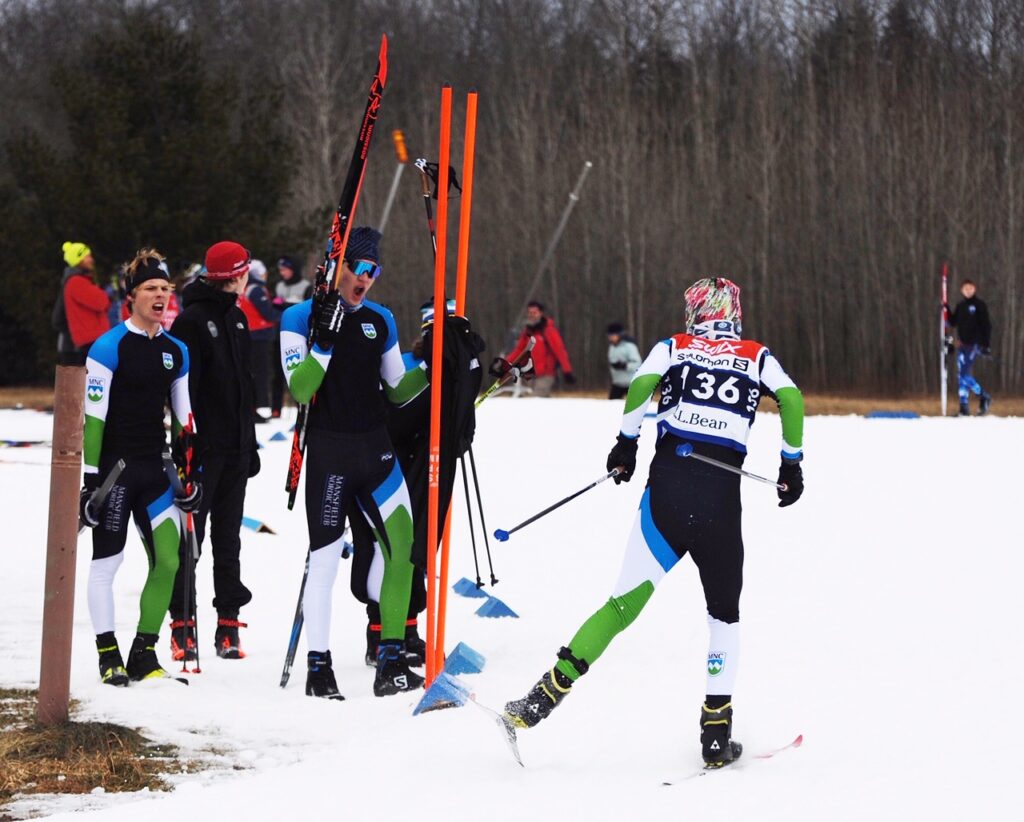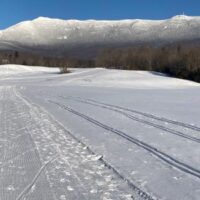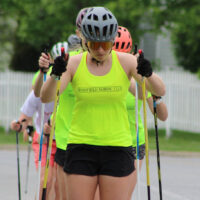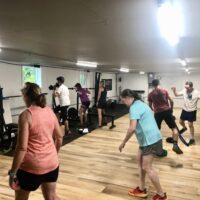For many, the racing season has ended with the exception of the FIS race this coming weekend at Craftsbury. Now what? Is it time to lace up the running shoes and start accumulating mileage? Time to circle the track in pursuit of a PR this spring season? Time to hit the gym and pump iron?
When it comes to physiologically ending one season (skiing on snow) and preparing for the next (dryland) we need to be careful and thoughtful. We’ve been training on snow for months now, meaning we’re only used to one m edium for activity: skiing (and strength training for some).
edium for activity: skiing (and strength training for some).
During the dryland season we have rollerskiing, biking, hiking, and running to contend with. If we immediately jump into those other activities full-force our bodies are just not going to handle them well.
Ending one season also means transitioning out of competition and into a building phase. For those competing in spring endurance sports, this season is the hardest because there really is no building or rest phase: you go right from pushing yourself in one sport to pushing in another. This works ok with fall sports like cross country because additional rollerskiing and volume can be added, and racing in the fall is a great way to tune-up for ski season. But in the spring we are looking for a different stimulus. When the skis are first hung up, it’s time to be careful about when and how you go hard.
We work through our training logs in weeks and months, so it helps to use the calendar as a baseline. April is considered to be the skiing “rest” month. In this rest month we are still training, although it’s all about slowly getting used to those dryland activities (more on that below). What happens when the ski season ends and we’re only halfway through March?
We still have snow to ski on, at least this week, and hopefully a bit into next week. If we have the means and the motivation, we want to extend the on-snow skiing as long as we can! At first this means seeking out groomed trails for Nordic skiing, and continuing to incorporate a mix of intervals, distance skiing, and even maybe hard efforts like timetrials. In the springtime we try to keep these fun though, such as intervals that end at Bryant Cabin so that we can come back down through the backcountry.
Once Nordic areas lose their groomed snow, it’s likely that you’ll still be able to find snow higher in the mountains. That’s when it’s time to do some backcountry exploring or even “nor-pine” skiing.
Once we’re in nor-pine season, it usually means incorporating running 2-3 times per week on non-ski days. This year there’s been some interest in a weekend running group to gradually build up some miles. When running, whether solo or with our group, it’ll be important to:
- Start slow (even paces that might feel arduous…your legs have NOT done this in a while!)
- Incorporate warmup drills and running technique progressions
- Bring out bands for hip strengthening in order to prevent injury and strengthen our strides
When the snow really is all gone, we’re looking at April, and the chance for rest. Good skiing is likely to have ended, and rain and mud come out in force. Since we continued to train through March, the rest is earned for this month and there’s no shame in sitting inside on a rainy, gross day rather than forcing yourself to motivate for a run or bike ride.
In April and May, it’s time to build back. Running, biking, rollerskiing, and strength are the main summer modes of training. Here’s a very generalized idea of how to incorporate them slowly:
Running
Start with 2 or 3 miles at a very easy pace, every other day. Gradually increase the distance of your runs first (no more than 10-15% increase in total mileage each week, which will feel small but adds up!). Incorporate band work whenever possible. Every run if you can!
Biking
Mountain bike trails are often too wet and muddy in the spring to ride. You can still get your MTB legs ready with some gravel riding, even if you don’t have a “gravel bike”. Pick some dirt roads, remember hi-viz clothing, and explore. Biking is the best way to do some longer spring workouts because it is not weight-bearing and has less injury risk.
Strength
In later April and May we really want to be getting into some functional, traditional strength training. However in the spring we can still get ready with a little bodyweight action. Focus mainly on the core, the upper back, and the hips. The MNC band warmup above serves as a good addition to any strength routine. And although it may bring back some Spring 2020 quarantine PTSD…you can find a basic solo strength workout video below.
Rollerskiing
This is saved for last because in April it is the least-important! We often start rollerskiing in the very end of April, but not much before that. Many of our strength exercises keep the ski muscles engaged, and taking a break from the repetitive motion of skiing can actually be good. It allows us to work on technique areas by coming into the movements fresh, and the break also serves us well to get motivation up for a LONG stretch of rollerskiing. Breaking out the rollerskis isn’t recommended more than once per week in April.




Comments are closed.